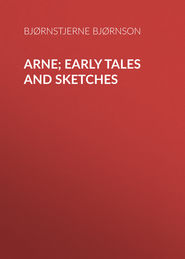По всем вопросам обращайтесь на: info@litportal.ru
(©) 2003-2024.
✖
Three Comedies
Автор
Год написания книги
2019
Настройки чтения
Размер шрифта
Высота строк
Поля
Svava. Father?—Is it possible that he too—? Do people say that? (NORDAN does not answer, and does not move.) Shameful! Impossible! I say it is impossible! (Rushes out. RIIS comes in from the right.)
Riis. What is the matter with Svava?
Nordan (coming forward). There was nothing else for it.
Riis. Nothing else for it? What do you mean?
Nordan. No, devil take it!—there was nothing else for it.
Riis. Quite so—but what?
Nordan. What do you say?
Riis. No, what were you saying—?
Nordan. What was I saying?
Riis. You said there was nothing else for it. You alarm me.
Nordan. Do I? Then you did not hear right. (Moves away from him.)
Riis. Didn't hear right? You were swearing about it too!
Nordan. That I certainly did not.
Riis. Very well then, you didn't. But how did you get on with Svava? Won't you answer me?
Nordan. How did I get on with Svava?
Riis. Why are you so preoccupied? Are things so bad, then?
Nordan. Preoccupied? Why should I be that?
Riis. You ought to know best. I was asking about Svava—how you got on with Svava—and I think I have the right to know.
Nordan. Look here, Riis.
Riis. Yes? (NORDAN takes him by the arm.) What is it?
Nordan. Did you see Svava?
Riis. Hurrying away out through the park? Yes. My dear chap, what was it?
Nordan. It was the Greek tragedy.
Riis. The Greek—?
Nordan. Only the name—only the name! Well, you know what the word means, don't you?
Riis. The Greek—?
Nordan. No, no—not "Greek," but "tragedy"?
Riis. Something mournful—?
Nordan. Far from it! Something amusing! It came to Greece with the worship of Dionysus, in whose train there was a goat—
Riis (draws his arm away). A goat? What on earth—?
Nordan. Yes, you may well be surprised—because it sang!
Riis. Sang?
Nordan. Yes—and is still singing, of course! And paints! There are pictures by him in every exhibition. And works in bronze and marble! Wonderful! And such a courtier as he is, too! It is he that designs ball-dresses and arranges entertainments—
Riis. Have you gone raving mad?
Nordan. Why do you ask that?
Riis. I am waiting patiently here till you have done talking such damned nonsense! We are accustomed to something of the sort when you are in one of those humours, but to-day I can't understand a blessed word of what you are saying.
Nordan. Don't you, my dear fellow?
Riis. Can you not tell me what my daughter said? Isn't it ridiculous that I cannot get that out of you! Now, briefly and intelligibly, what did she say?
Nordan. Do you want to know?
Riis. He asks that!
Nordan. She said she pitied all the innocent young girls that, generation after generation, disappear—
Riis. Where to?
Nordan. That is just it—where to? She said: "They are brought up in pious ignorance, and finally the unsuspecting creatures are wrapped up in a long white veil that they shall not be able to see distinctly where they are being taken to."
Riis. Now you are talking your mythology again. Am I not to—
Nordan. Be quiet! It is your daughter that is speaking. "But I will not do that," she said. "I will enter confidently into the holy estate of matrimony, and sit down by the hearth in the land of my fathers, and bring up children in the sight of my husband. But he shall be as chaste as I; for otherwise he stains my child's head, when he kisses it, and dishonours me."—There, that is what she said, and she looked so splendid as she said it. (A ring is heard at the bell.)
Riis. They are upon us! They are upon us! What in the world is going to happen? We are in a muddle of the most preposterous theories! The whole heathen mythology is buzzing round in my head! (Hurries to the door to meet MR. and MRS. CHRISTENSEN, whom MARGIT is showing in.) I am so happy to see you!—so very happy! But your son?
Christensen. We could not get him to come with us.
Riis. I am very sorry!—At the same time, I quite understand.
Christensen. I admire the beauty of this place afresh every time I see it, my dear sir!
Mrs. Christensen. This beautiful old park! I wanted once—. Oh, good morning, doctor! How are you?
Riis. What is the matter with Svava?
Nordan (coming forward). There was nothing else for it.
Riis. Nothing else for it? What do you mean?
Nordan. No, devil take it!—there was nothing else for it.
Riis. Quite so—but what?
Nordan. What do you say?
Riis. No, what were you saying—?
Nordan. What was I saying?
Riis. You said there was nothing else for it. You alarm me.
Nordan. Do I? Then you did not hear right. (Moves away from him.)
Riis. Didn't hear right? You were swearing about it too!
Nordan. That I certainly did not.
Riis. Very well then, you didn't. But how did you get on with Svava? Won't you answer me?
Nordan. How did I get on with Svava?
Riis. Why are you so preoccupied? Are things so bad, then?
Nordan. Preoccupied? Why should I be that?
Riis. You ought to know best. I was asking about Svava—how you got on with Svava—and I think I have the right to know.
Nordan. Look here, Riis.
Riis. Yes? (NORDAN takes him by the arm.) What is it?
Nordan. Did you see Svava?
Riis. Hurrying away out through the park? Yes. My dear chap, what was it?
Nordan. It was the Greek tragedy.
Riis. The Greek—?
Nordan. Only the name—only the name! Well, you know what the word means, don't you?
Riis. The Greek—?
Nordan. No, no—not "Greek," but "tragedy"?
Riis. Something mournful—?
Nordan. Far from it! Something amusing! It came to Greece with the worship of Dionysus, in whose train there was a goat—
Riis (draws his arm away). A goat? What on earth—?
Nordan. Yes, you may well be surprised—because it sang!
Riis. Sang?
Nordan. Yes—and is still singing, of course! And paints! There are pictures by him in every exhibition. And works in bronze and marble! Wonderful! And such a courtier as he is, too! It is he that designs ball-dresses and arranges entertainments—
Riis. Have you gone raving mad?
Nordan. Why do you ask that?
Riis. I am waiting patiently here till you have done talking such damned nonsense! We are accustomed to something of the sort when you are in one of those humours, but to-day I can't understand a blessed word of what you are saying.
Nordan. Don't you, my dear fellow?
Riis. Can you not tell me what my daughter said? Isn't it ridiculous that I cannot get that out of you! Now, briefly and intelligibly, what did she say?
Nordan. Do you want to know?
Riis. He asks that!
Nordan. She said she pitied all the innocent young girls that, generation after generation, disappear—
Riis. Where to?
Nordan. That is just it—where to? She said: "They are brought up in pious ignorance, and finally the unsuspecting creatures are wrapped up in a long white veil that they shall not be able to see distinctly where they are being taken to."
Riis. Now you are talking your mythology again. Am I not to—
Nordan. Be quiet! It is your daughter that is speaking. "But I will not do that," she said. "I will enter confidently into the holy estate of matrimony, and sit down by the hearth in the land of my fathers, and bring up children in the sight of my husband. But he shall be as chaste as I; for otherwise he stains my child's head, when he kisses it, and dishonours me."—There, that is what she said, and she looked so splendid as she said it. (A ring is heard at the bell.)
Riis. They are upon us! They are upon us! What in the world is going to happen? We are in a muddle of the most preposterous theories! The whole heathen mythology is buzzing round in my head! (Hurries to the door to meet MR. and MRS. CHRISTENSEN, whom MARGIT is showing in.) I am so happy to see you!—so very happy! But your son?
Christensen. We could not get him to come with us.
Riis. I am very sorry!—At the same time, I quite understand.
Christensen. I admire the beauty of this place afresh every time I see it, my dear sir!
Mrs. Christensen. This beautiful old park! I wanted once—. Oh, good morning, doctor! How are you?











